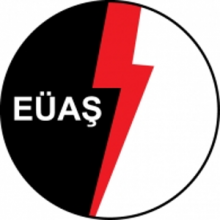Presentations & Videos
ECHOES project presentation
Brief presentation of the ECHOES project by our project coordinator Prof. Dr. Christian A. Klöckner. Dr. Klöckner explains what is ECHOES, who is working in it, which are its main objectives and the expected results.
What is the potential of Advanced Social Science Knowledge in Policymaking?
Description of this report that analyses recent energy policy and strategy documents from the EU level, via the Member State level, down to the regional level for how social science knowledge is reflected in them and which assumptions about human energy behaviour they reflect. Full report is available at the following URL: Potential of advanced Social Science Knowledge in policymaking
“Energy memories” and their impact on Energy Cultures and energy consumption patterns
Energy memories have an impact on energy cultures. This video is an introduction to the report on the impact of Energy memories, produced in ECHOES project and available here: Report on the impact of energy memories.
Identity processes and individual factors in Energy Decisions
Disciplines like psychology, sociology and economics have extensively studied the mechanisms driving human energy choices. However, a knowledge gap still persists on the real links between psychological factors identified in earlier studies and people’s observed and actual behaviours in the energy domain.
This report presents the results of two meta-analyses that assessed, respectively:
- the link between identity factors and pro-environmental behaviours in general, and
- the links between individual levels factors and energy-saving behaviours.
Psychological factors in energy decisions
This is a report on social identity perspective on sustainable energy transitions, this is, how individual energy choices are made in group contexts. The report has been built on literature reviews on psychological models and factors implicated in energy-related behaviours and decisions.
Analysis of enabling factors for consumer action
What are the enabling factors for collective action in the energy transition domain? To what extent do these factors have the potential to influence the behaviour of consumers and prosumers?
Enabling factors are defined as those energy relevant framework conditions that can be activerly shaped by policy makers in a society with the goal of energy transition.
Understanding energy choice dynamics and their impact on energy governance in the EU
A consolidated scientific knowledge base that advances consensus on the key factors and relationships driving specific energy choices and related behavioural patterns illustrative of particular energy lifestyles. This report distils the conclusions from the consensus achieved on the soundness of the results obtained, the expected impact on actual energy behaviour, the relevance to practice and decision-making, and the required changes on energy governance at national and European levels.
Policy-ready recommendations
The ECHOES research results are distilled into a set of policy recommendations for the energy sector. This shows how social science insights can be used to make energy policies more impactful.
ECHOES participation in the workshop "Making the best use of SSH in the clean energy transition"
The workshop "Making the best use of SSH (Social Sciences and Humanities) in the clean energy transition" was organised by:
- EERA (European Energy Research Alliance)
- VTT Technical Research Centre (Finland)
- Anglia Ruskin University (Cambridge)
- The European Commission (DG Energy and RTD)
Jed Cohen (JKU-EI) and Tina Koljonen (VTT) presented ECHOES project in session 1 of this workshop with the topic: Lessons from H2020 energy-SSH projects: how do these demonstrate the worth of energy-SSH and what are the policy recommendations?
The European Union's goals for climate and energy
The new 2030 goals for climate and energy will help make th EU more competitive, secure and sustainable. A video by the European Commission.
The Global Energy Transition
The global energy transition is underway and IRENA shows it in this video:
















